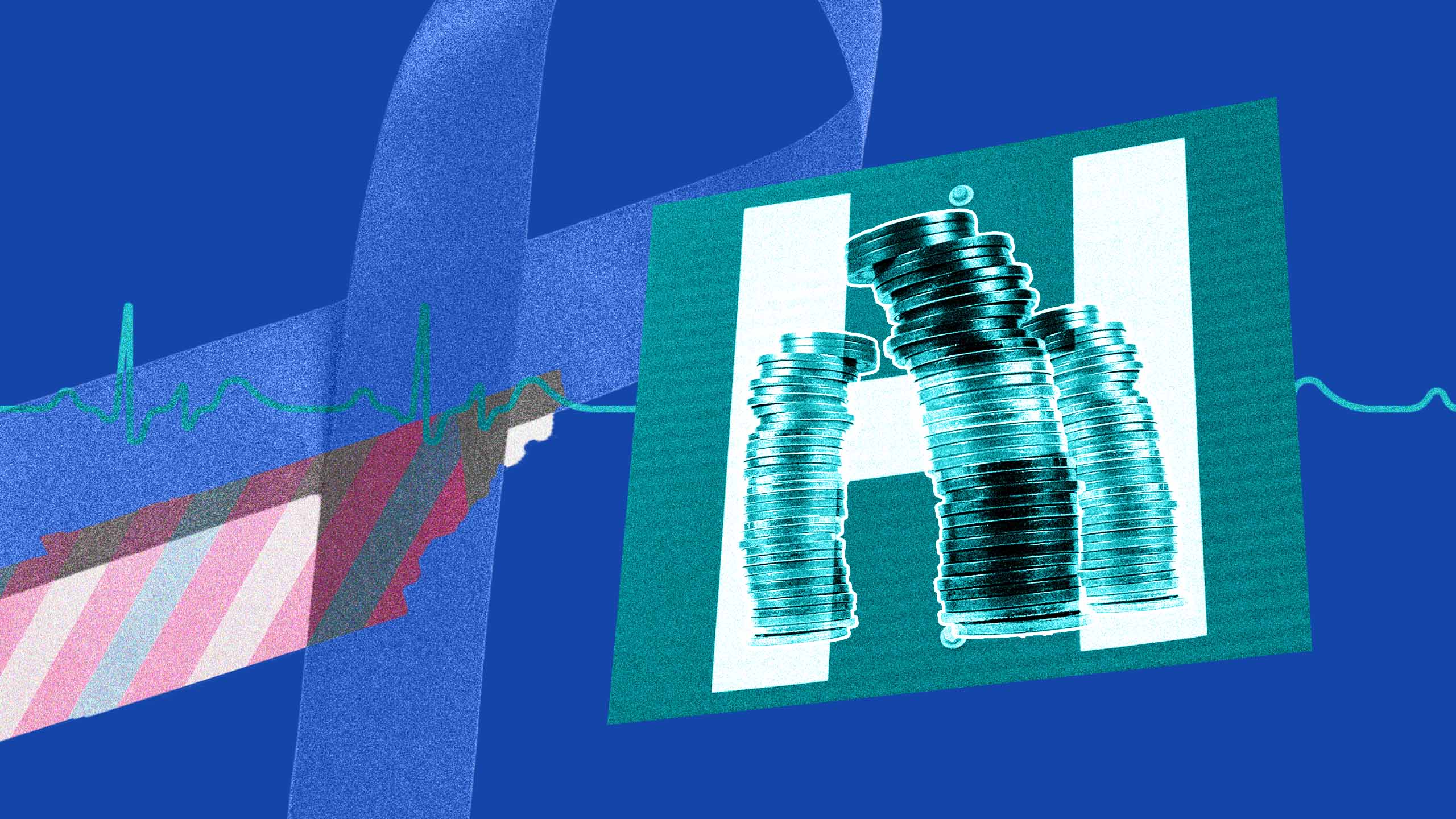The Tennessee government is rejecting millions in federal HIV prevention funds, in what LGBTQ2S+ advocates are calling an obvious attack on abortion and trans rights groups in the state.
Last fall, Republican governor Bill Lee publicly criticized both a task force on trans health issues and Planned Parenthood for receiving funding from Tennessee’s federal health grants. However, Lee escalated his threat late last week by announcing that, as of May 31, the Tennessee government will no longer accept any funding from the CDC intended for testing, prevention and treatment of HIV.
“It’s pretty hard not to think that the motivation is to restrict funding to groups [they] don’t want to support,” Wayne Smith, whose faith-based HIV prevention program in Knoxville stands to lose around $10,000 in annual funding from the move, told the Washington Post.
Joseph Cherabie, an infectious disease physician at Washington University in St. Louis, who oversees an HIV prevention program, called the decision “a coordinated effort … to try to dehumanize and stigmatize the LGBTQ2S+ community” in an interview with Local Today Tennessee.
“A state choosing to back away from federal money for healthcare—if they do get away with it —could introduce a very dangerous pattern.”
According to the Washington Post, state officials say the government plans to shift the HIV funding toward “human trafficking victims … the transmission to first responders [and] … the transmission from mothers to their babies,” but did not explain the reasoning behind the decision. The new strategy stands in stark contrast to the previous state and prevailing federal strategy of prioritizing gay men, queer and trans people—especially BIPOC queer and trans people—unhoused people and IV drug users.
Local LGBTQ2S+ healthcare advocates point out that refusing federal funds actually relieves the state of its responsibility to follow CDC guidelines on scientific evidence-based medical policy—enabling the state to deny care to whom it sees fit.
“A state choosing to back away from federal money for healthcare—if they do get away with it —could introduce a very dangerous pattern,” says Molly Rose Quinn, executive director of OUTMemphis, Tennessee’s largest LGBTQ2S+ health organization.
This move is the latest in an ongoing struggle between Planned Parenthood and Tennessee’s Republican-controlled government. The Associated Press reported documents show that even before the state made its decision to cut funding for nonprofits, the government had already planned to defund HIV testing and treatment programs at Planned Parenthood specifically.
The state’s Republican former governor Bill Haslam first tried to terminate the state’s subcontracts with Planned Parenthood in 2015, and was subsequently sued by Planned Parenthood. The state lost, and the injunction is still in place today—which makes pulling money solely from Planned Parenthood very difficult.
Both medical professionals and queer advocates have been unanimously opposed to the funding cuts.
“We’re just really freaked out, honestly,” Quinn told the Washington Post. “We are concerned not only for the people we serve directly, but statewide, the HIV transmission rates are alarming in this part of the country.” The group has received USD $180,000 from the CDC program for HIV testing thus far.
Advocates in Tennessee are especially concerned because Shelby County, which includes Tennessee’s capital city of Memphis, already faces some of the country’s highest HIV infection rates. According to the CDC, 819 per 100,000 Shelby County residents were HIV-positive in 2020. The average for the entire state is 11.3 per 100,000 as of 2023, and the national average in the U.S. is approximately 300 for every 100,000. Experts say the state could potentially experience a major outbreak as a result of the funding loss.
As for what comes next, Quinn told the Washington Post that groups across Tennessee are scrambling to find alternative funding options like local or federal grants, and partnering with other community organizations. But she says the situation is bleak, and future prospects are frightening.


 Why you can trust Xtra
Why you can trust Xtra


